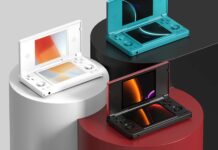
Engineer Isabel Gracefield on working with Fraser T Smith and the industry’s shift in welcoming talent
Tara Lepore spoke to the engineer, who works mostly out of London’s RAK Studios, about starting out as a studio assistant, working with huge music stars under acclaimed producer Fraser T Smith and the industry’s shift in welcoming new talent…
In between “getting last-minute calls from Emeli Sande to record vocals in her house”, engineer Isabel Gracefield found time for a chat with PSNEurope recently, expressing a specific desire to “geek out” about all things audio.
Gracefield’s love of sound can be traced back to her musical upbringing, playing in orchestras since she was a child. “When I was maybe 13 or 14 and started to read record sleeves, I could see that there was a role that was ‘being a producer’, and started to understand that relationship to the music. I would make fanzines for bands that I loved – I was very engaged with music at that age.”
After leaving school, Gracefield enrolled on the Commercial Music degree at the University of Westminster, keen to get involved in the music industry “at any level”. It was here where she fell in love with spending time in its basement recording studios, “figuring out the university booking system so I could always get a slot. I was always the weirdest person in the room in terms of what I was doing because we didn’t really have a lot of formal teaching, so we would just have to come up with very strange solutions to engineering problems, making my stuff sound very left-field and out there. I would experiment in there for hours and hours”.
Gracefield admits her route was very traditional: do a degree, be an assistant, work in a studio. “Now, that pathway is sort of a relic,” she says. “Music being made by people in small project studios – by young people who might not have any formal education but are brilliantly talented musicians – is some of the most alive music that’s out there right now. I think pop is a really fantastic, interesting space at the moment and that wouldn’t have necessarily happened through the system that I’ve come through.”
While at university, Gracefield’s work caught the attention of various guest lecturers, some of whom gave her keys to work from their studios at night. From that, she got an assistant job at Camden’s Goldtop Studio, whose main country musician clientele would often cut a record in an afternoon. She says: “It was very much about not getting in the way of what they did, miking it up, really creating an atmosphere and then just letting them do their thing.”
Heading south
Connections at Goldtop led Gracefield to an opportunity that would help steer her career towards working with more mainstream artists. “I was helping out at a studio in Parsons Green, assisting a fantastic mixer called James Reynolds and making cups of tea. In the same building, there was an accountant who told me that she had a client who was looking to bring in a junior engineer. He’d been through around 30 junior engineers before that, so I went down, did a week with him and landed myself a job.”
That client was Fraser T Smith, an acclaimed producer who is “incredibly generous with credit”, according to Gracefield. She therefore describes this time as “CV gold”, assisting on Adele’s Grammy award-winning single Set Fire To The Rain, among other Top 10 hits. “I was really lucky because I was there at this particular time when he was doing so much exciting stuff. He really wanted to give me a lot of opportunities to work on bigger things and it was a really different environment to one that I’d been in before – it was very much about being fast on Pro Tools.”
RAKing up credits
The majority of Gracefield’s engineering now takes place at London’s RAK Studios, having served as an assistant there for several years, working on sessions with huge acts including Kanye West, Radiohead and The XX.
“A huge amount of what I’ve learned has come from being in that environment and working in that studio,” she says, going on to praise the “sonic quality” of the API mixing desk in RAK’s Studio 1. “The SSL desk in Studio 4 also has this very shiny, glacial sound, so when you put it together with what the API preamps are doing, it adds a very emotional quality to the sound.”
With more than a decade’s experience under her belt, Gracefield has seen her fair share of change in the industry. “There’s more access now than there’s ever been before. You put Logic on your laptop at home with just one microphone, and you’ve got what would have been a million-pound studio back in the ’60s or ’70s.”
In terms of the studio’s evolution in recent years, Gracefield believes Ableton has made the biggest impact to modern production methods. “We’re all still running Pro Tools but the majority of what I hear on BBC Radio 1 feels to me like it’s being made on Ableton. I’ve not seen a shift in technology in that way before.”
She continues: “I think the [more traditional] system I’m part of still exists and I would never deter someone from wanting to learn old-fashioned engineering. However, I do think the opportunities are increasingly small. There’s a lot of emphasis placed on formal training but ultimately there are things that I know how to do that in 20 years no one is going to want anymore.
“That said, the majority of assistants are still middle-class white male, so clearly there is an access issue there. I can’t comment on why that is, but I know that when I’ve got an opportunity to employ someone as an assistant who doesn’t really fit that box, I’ll generally request them. I think it’s important to leave doors open behind you as you go through for people who are different from yourself.”
However you break into the industry, Gracefield is proof that hard graft will get you far in the business. That, and a love for the job.
“Regardless of what I think of a project when it first arrives in the room, I tend to fall in love quite fast with any music. I like when I get to do things that are really different, and I’m really lucky in that I end up loving everything that I work on.”
Want more stories like this sent straight to your inbox? Subscribe to our free daily newsletter here.
Source: mi-pro.co.uk











